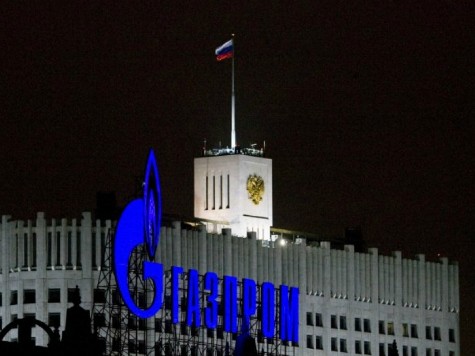
In April 2007, Russia’s state owned energy giant Gazprom promised the company’s value would be $1 trillion in seven years. They came up $910 billion short of the prediction. It is another black eye for Russia in the public relations department.
Gazprom is the natural gas supplier for Europe, but spent a lot of money on the 2014 Winter Olympics in Sochi and projects in Siberia. The company went down in the stock market the past three years.
“Gazprom is a champion in value destruction,” Ian Hague, founding partner of New York-based Firebird Management LLC, which manages $1.3 billion of assets including Russian stocks, said in an interview yesterday. “It’s not just Gazprom that failed to achieve its goal of increasing market capitalization. It’s Russia who failed. It failed to create an environment where state-owned companies would function as shareholder-owned entities.”
Many thought the crisis between Ukraine and Russia prompted Gazprom to raise gas prices in Ukraine and demand Kyiv pay off their debt. On April 1, Gazprom told Ukraine they are stripping the gas discounts they provided in December to now ousted president Viktor Yanukovych and doubling the price. It is set at $383.50 per 1,000 cubic meters. Gazprom also demanded Ukraine pay back their $1.89 billion debt. This major loss in the stock market could be another reason why.
Gazprom is trying to save face.
Sergei Kupriyanov, a Gazprom spokesman in Moscow, said yesterday that the $1 trillion forecast “was taken out of context” because company officials were projecting a possible valuation if oil prices kept surging. He said the sanctions that the U.S. and Europe imposed on Russia following its takeover of Crimea last month have contributed to the slump in Gazprom’s share price, deepening its discount to global peers.
Russian President Vladimir Putin officially annexed Crimea from Ukraine on March 21 and President Obama finally sanctioned people in Putin’s inner circle. The sanctions did not include the energy sector, but US sanctions can reach everyone. If a person or company has a presence in America they could suffer penalties if business is done with those on the sanction list.
However, this situation is not new to a state owned company.
“This is an issue of any Russian state company,” Oleg Popov, who helps manage $1 billion of securities for Allianz Investments in Moscow, said by e-mail yesterday. “Gazprom is an active participant in the government’s foreign policy, social projects, where Gazprom incurs costs instead of the government, thus lifting the burden off the budget.”
The company “is not being managed as a profit-maximizing entity but rather for all sorts of other political agendas,” William Browder, the founder of Hermitage Capital Management Ltd. said in an April 1 interview.
According to Bloomberg, Gazprom declined by 9% the first nine months of 2013. The crisis between Ukraine and Russia could only make the situation worse. Russia as a whole only grew 1.3% in 2013 and the World Bank warned the country could plunge into a recession. This year it might only grow 1%.

COMMENTS
Please let us know if you're having issues with commenting.